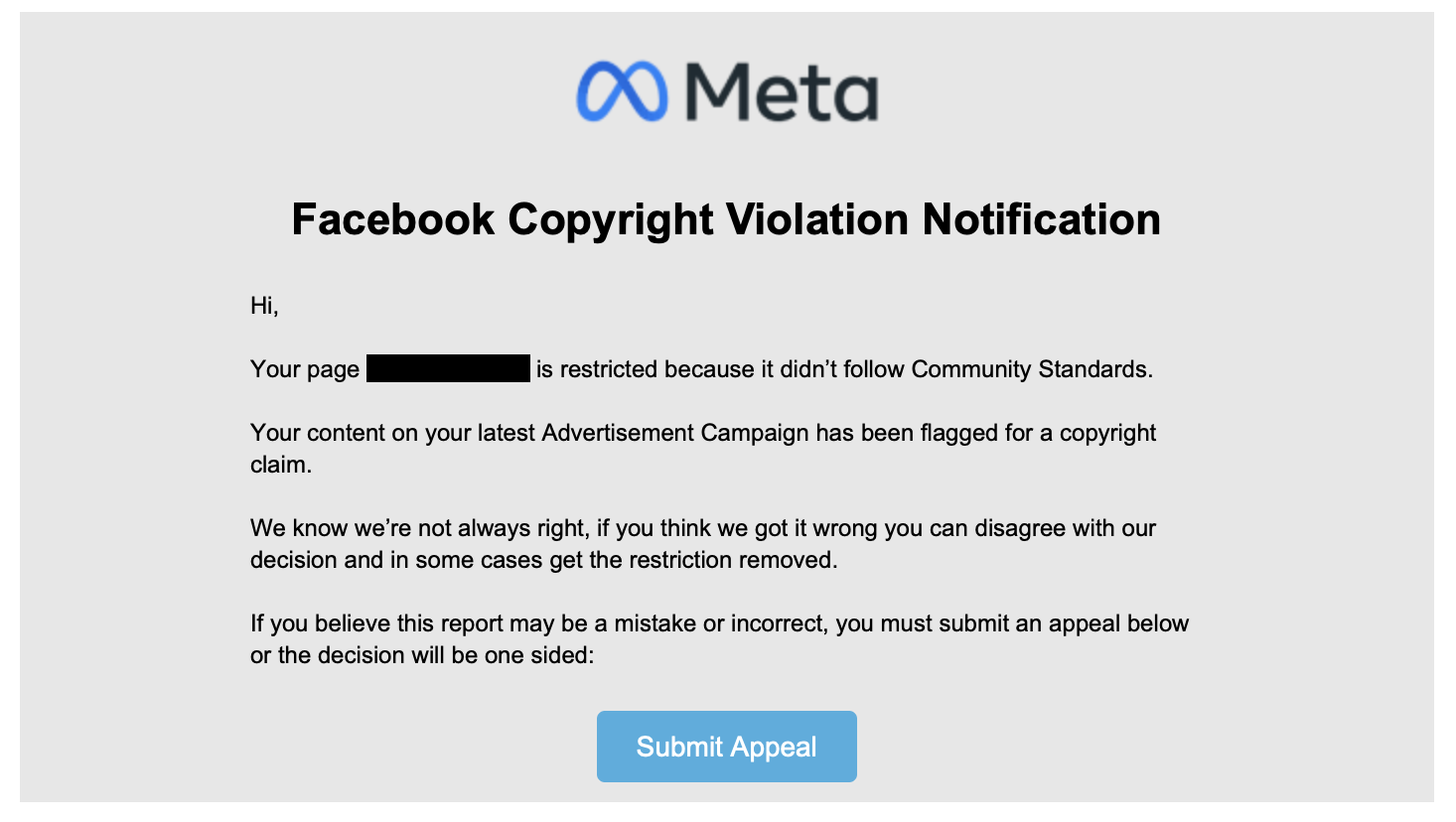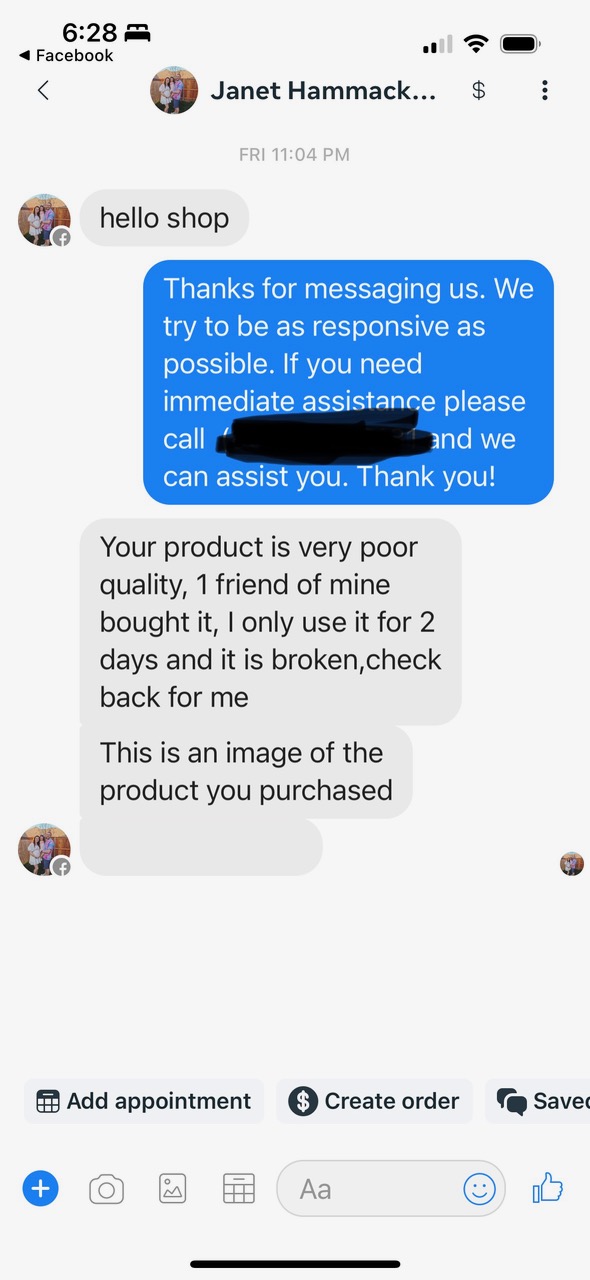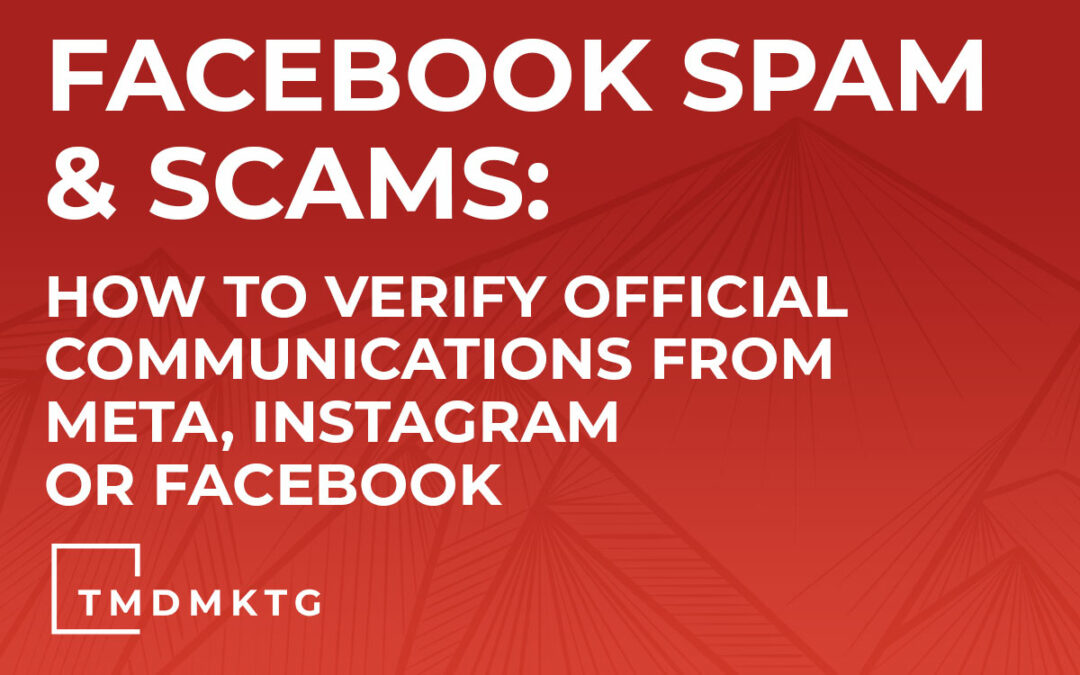With a rash of recent messages from fake accounts and fake emails fishing for your account information, notifying you that your account is suspended or your account is in violation of policies, it is important to determine if it is fake, spam, or a scam before you click on the links provided via email or respond to an instant message.
Here’s some examples:




We get a lot of questions about how to identify legitimate communications from Meta, Instagram, and Facebook. Here are recommended best practices to protect your online safety.
Emails: Who is it from?
Legitimate emails from Meta, Facebook, and Instagram will always include our name
after the @ symbol.
Real:
Fake:
DM’s: Fake Meta pages and accounts
Beware of posts or DMs claiming you have violated Community Standards or that your access is being removed. Meta, Facebook, and Instagram will never tag or DM you with these
types of notifications. Also common sense tells me that if your account was actually suspended, you would not be able to see the message!
Official Meta, Facebook, and Instagram Pages will display the blue verified badge indicating authenticity.
Phone Calls From Meta
If you’re contacted by a suspicious “Facebook representative,” ask them to send you an email to verify if they’re affiliated with Meta.
What To Do
If you’ve accidentally clicked a suspicious link, change your password immediately and enable 2 factor authentication.
Avoid any suspicious Pages claiming to be Meta properties without the blue verified badge indicating authenticity.
Reporting a fake account here


Recent Comments